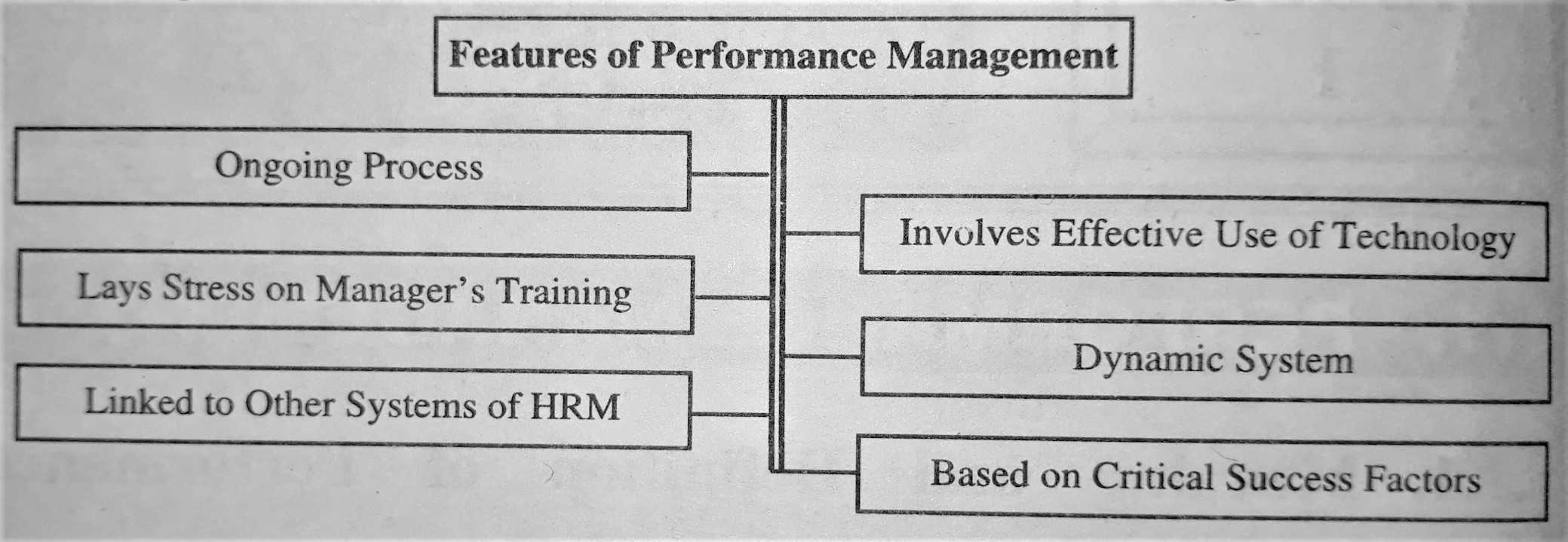Following are the various features of performance management:
1) Ongoing Process: Performance management is an ongoing process? Rather being a yearly exercise that involves continuous monitoring and feedback from employees.
Further, employees should be involved in performance management at various stages of designing, implementing, and process of review through surveys, focus group interviews, etc.
2) Involves Effective Use of Technology: Performance management makes effective use of technology by conveying required skills, monitoring performance, and collecting and giving crucial feedback with the help of information technology. In this way, performance management contributes to the minimization of systems bureaucratization.
3) Lays Stress on Manager’s Training: Since coaching plays a crucial role in performance improvement, performance management lays stress on providing complete training to the managers. It leads not only to their personal development but also helps them in becoming effective coaches.
4) Dynamic System: Performance management is dynamic in nature, which is appropriate for changing workplace realities, like teamwork, job sharing, teleworking, etc.
5) Linked to Other Systems of HRM: There is a close linkage between the performance management system and various systems of HRM, mainly training and development, career planning, and succession planning.
6) Based on Critical Success Factors: Performance is measured on the basis of critical success factors that have resulted from business and corporate strategy. So, there is a close alignment between performance management and organizational culture and context without the influence of passing trends.
Also, there is a strategic link between performance management and the objectives set by the organization.
